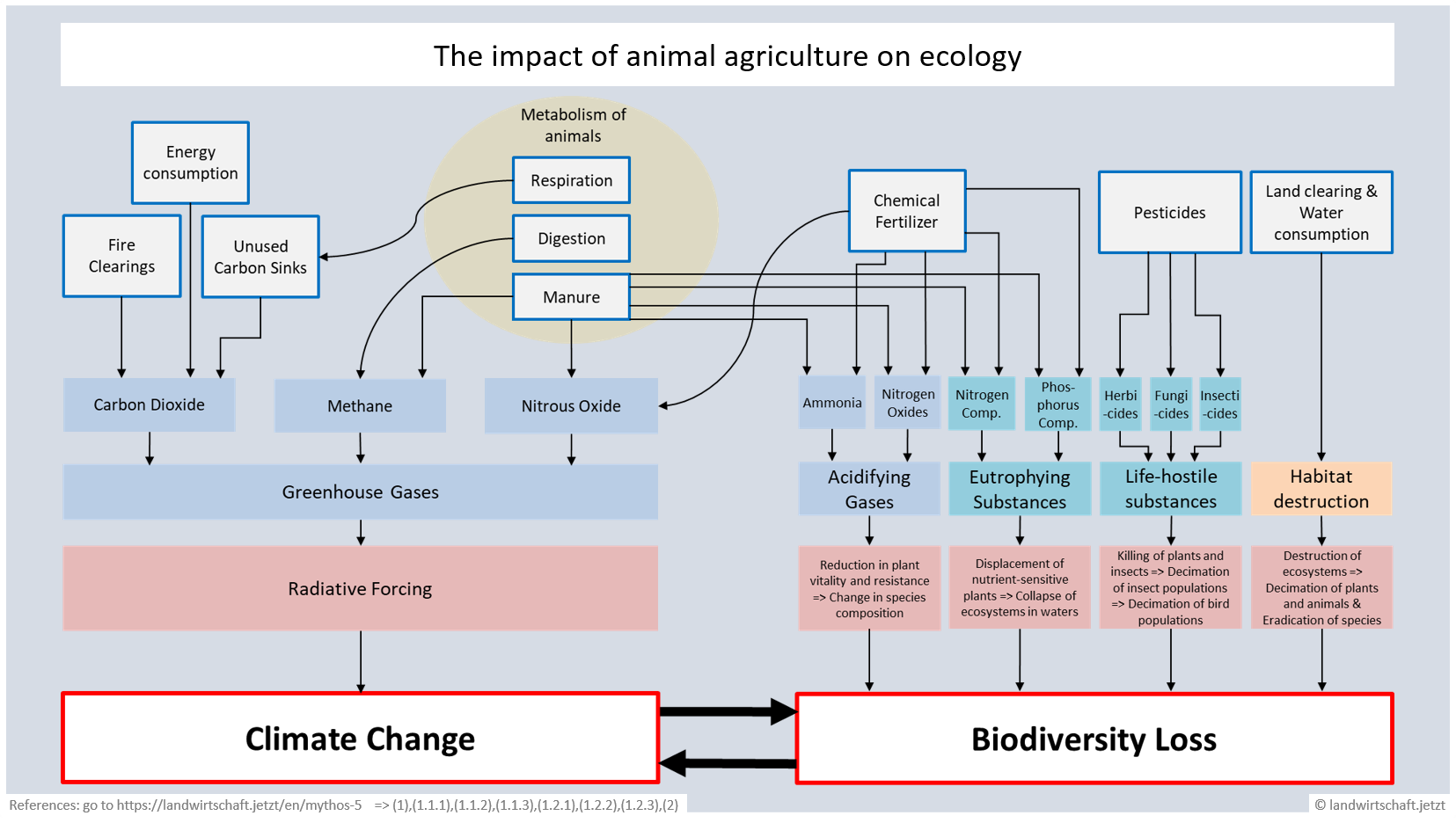Die Nutzung von Tieren zur Umwandlung pflanzlicher Proteine und Nährstoffe in Fleisch, Milch, Eier und andere tierische Produkte ist enorm ineffizient (siehe (1),(2)). Es werden hohe Inputs benötigt (Land, Wasser, Kunstdünger, Pestizide) und hohe Outputs erzeugt (Treibhausgase, versauernde Gase, eutrophierende Substanzen) (siehe (1.1),(1.2)). Zum einen trägt die Tierhaltung durch ihre direkten Treibhausgasemissionen und für Kohlenstoff-Sequestrierung verlorene Flächen maßgeblich zum Klimawandel bei. Zum anderen werden durch die Rodung von Wäldern, durch hohen Wasserverbrauch, durch versauernde Gase, durch eutrophierende und toxische Substanzen Lebensräume minimiert, Tiere und Pflanzen verdrängt und getötet, komplette Ökosysteme zerstört und Arten ausgerottet. Dies führt schließlich zu einem Verlust an Biodiversität.
Climate change and biodiversity loss are closely related and mutually reinforcing (positive feedback loop).

